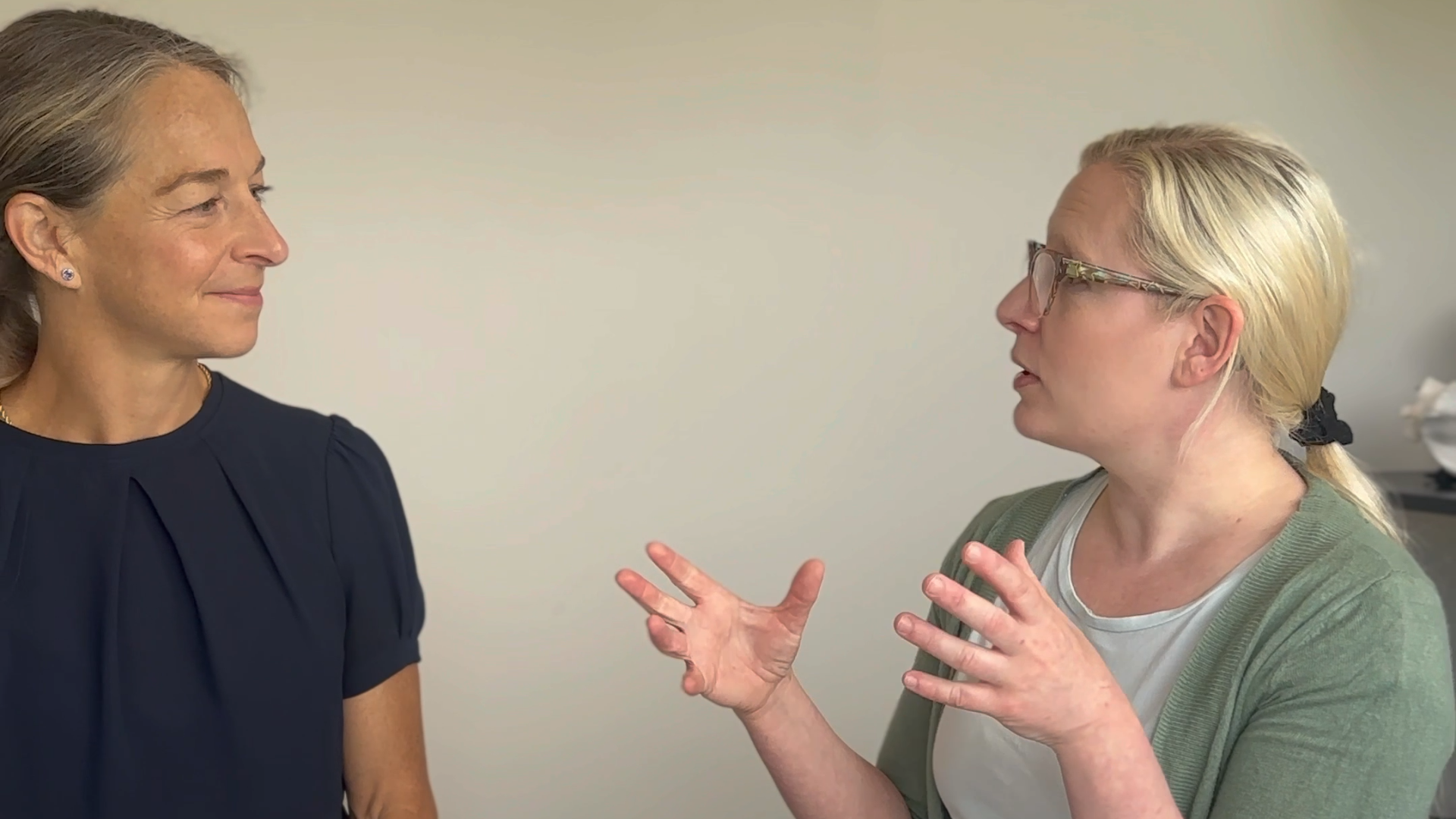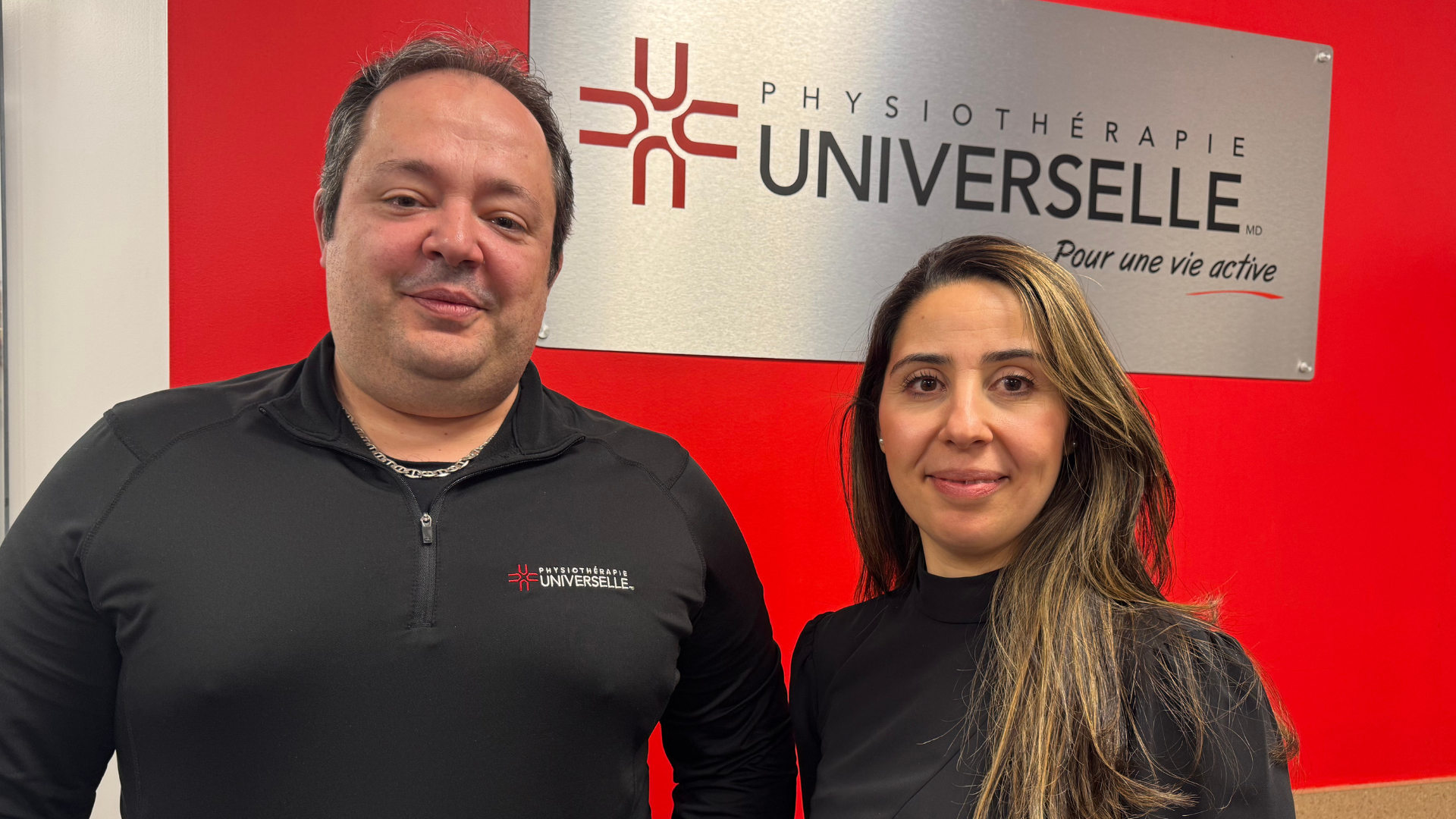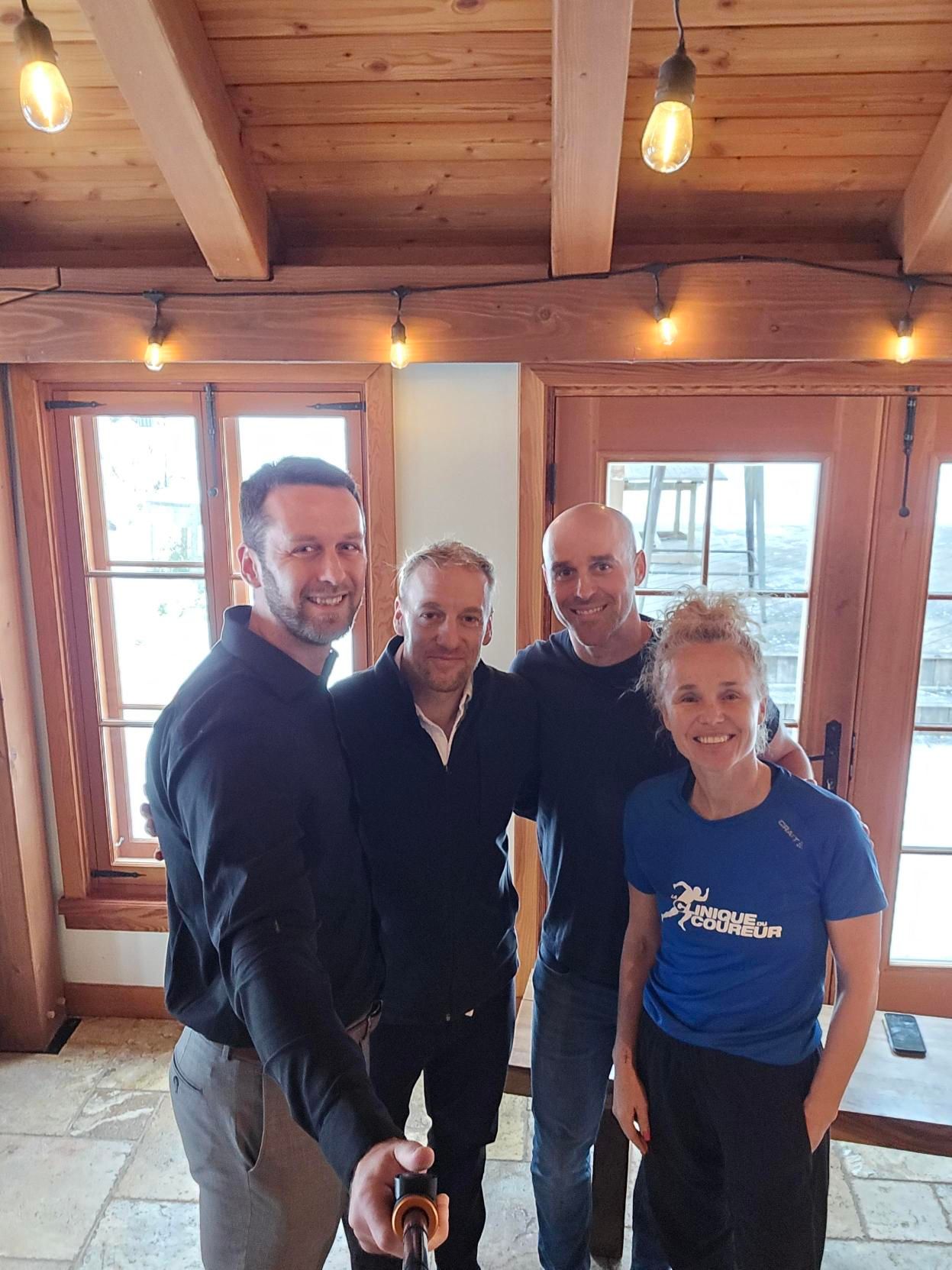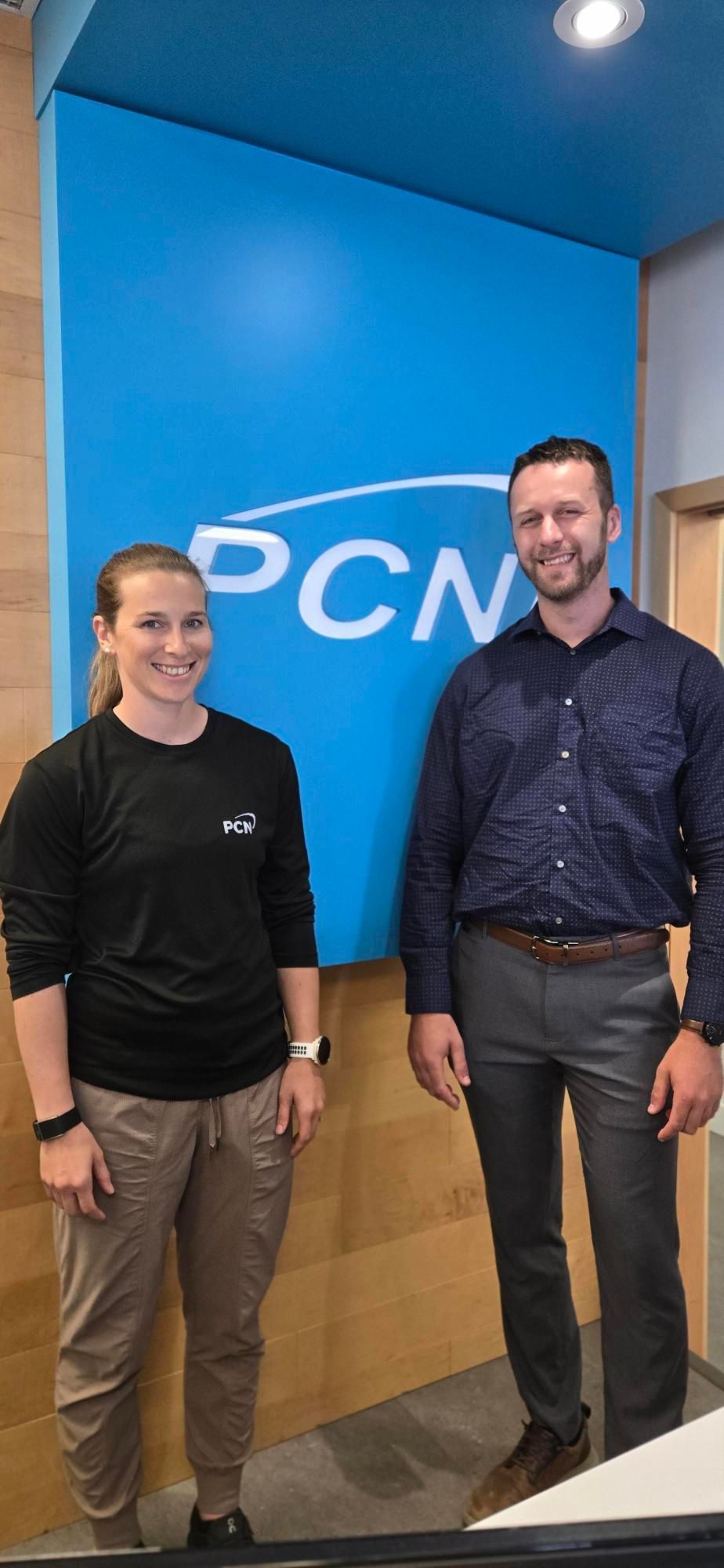par Hélène Lamoureux
•
3 juin 2025
Imaginez vivre avec une douleur constante. Elle ne vous quitte jamais tout à fait. Parfois sourde, parfois vive, elle colore vos journées et hante vos nuits. Ce mal persistant vous empêche de bouger comme vous le voudriez, de travailler, de dormir, ou simplement de profiter d’un moment calme. Avec le temps, vous devenez plus fatigué, plus irritable, plus replié. Vous vous sentez seul, découragé, parfois même incompris. Et si ce n’était pas juste la douleur… mais tout ce qu’elle entraine autour? Ce scénario, qui est loin d’être rare, reflète le quotidien de nombreuses personnes aux prises avec la douleur chronique. Ce qui est moins souvent reconnu — même dans les milieux de soins — c’est à quel point la santé mentale et la douleur physique s’entrelacent. Elles interagissent, se nourrissent, et parfois, s’entremêlent dans un cercle vicieux difficile à briser. Ce lien entre douleur chronique et troubles de santé mentale comme l’anxiété, la dépression ou le stress post-traumatique est aujourd’hui largement documenté. Pourtant, comme le soulignent Bhatt et ses collègues (2024), « il n’y a souvent aucune reconnaissance explicite du rôle des comorbidités et de la relation bidirectionnelle entre la santé mentale et la douleur. » Les comorbidités désignent la présence simultanée de plusieurs troubles de santé qui peuvent interagir et se renforcer mutuellement. Dans ce cas précis, cela fait référence à la coexistence de la douleur chronique et des troubles mentaux. Cela signifie que, même lorsque les deux problèmes sont présents, ils sont souvent traités séparément, comme s’ils n’étaient pas liés. Et pourtant… La douleur chronique augmente le risque de développer des troubles dépressifs, anxieux ou de sommeil. Une mauvaise santé mentale, elle, peut amplifier la douleur, diminuer la tolérance physique et émotive, et nuire aux traitements. Ensemble, elles peuvent affaiblir la motivation, réduire la mobilité, altérer les relations sociales, et même compromettre le maintien en emploi. Cette combinaison, que l’on peut appeler double fardeau, est bien plus qu’une addition de symptômes : c’est un état de vulnérabilité prolongé qui demande une attention urgente. Une double peine encore trop peu reconnue Cette combinaison de douleur chronique et de détresse psychologique est souvent invisible pour l’entourage — et malheureusement aussi pour les systèmes de soins. Trop souvent, les approches thérapeutiques sont cloisonnées : d’un côté, on traite la douleur physique, de l’autre, les troubles de l’humeur, sans pont entre les deux. Pourtant, les données sont claires : ces problèmes ne sont pas juxtaposés, ils sont interconnectés. Par exemple, les personnes vivant avec un trouble bipolaire ont deux fois plus de risque de souffrir de douleur chronique que la population générale (Nicholl et al., 2014). Ces personnes sont aussi plus à risque d’exclusion sociale et professionnelle. D’ailleurs, les personnes touchées par cette double réalité contribuent à elles seules à des taux plus élevés d’absentéisme (être souvent en arrêt de travail) et de présentéisme (être au travail mais avec une efficacité diminuée). Malgré cela, comme le souligne Bhatt et al., « la douleur n’est pas normalement évaluée chez les personnes ayant des troubles de santé mentale », et l’inverse est aussi vrai : de nombreuses personnes souffrant de douleur chronique vivent avec une détresse psychologique non diagnostiquée, non reconnue… et donc non traitée. Quand la douleur et le stress deviennent nuisibles Mais que se passe-t-il lorsque ces réactions surviennent trop souvent ou persistent ? Au départ, la douleur nous aide à éviter le danger. Mais lorsque la douleur devient chronique, elle perd son rôle protecteur et devient un problème en soi. Imaginez un peu : la douleur qui ne cesse de revenir, même sans raison apparente, finit par envahir notre quotidien. Elle peut entraîner une fatigue intense, des troubles du sommeil, et nuire à notre humeur. Le stress, lui, peut également devenir néfaste. Si un stress aigu peut nous motiver à affronter une situation difficile, un stress prolongé peut perturber notre santé physique et mentale. Il affaiblit notre système immunitaire, provoque de l'anxiété, et peut mener à des problèmes de concentration ou de dépression. Le stress chronique est un véritable piège : il transforme un mécanisme de survie en un fardeau permanent. Quand on ne traite qu’un côté de l’équation En ignorant une des deux dimensions — mentale ou physique —, on risque des échecs thérapeutiques répétés. Un plan d’intervention qui mise uniquement sur l’activité physique, sans tenir compte d’un état dépressif, peut être mal reçu ou difficile à suivre. À l’inverse, une thérapie psychologique qui néglige une douleur persistante et invalidante peut sembler déconnectée de la réalité vécue par la personne. Ce constat peut sembler décourageant, mais il ouvre aussi la voie à des solutions. Des pistes pour sortir du cercle vicieux Briser la spirale entre douleur et santé mentale n’est pas simple, mais c’est possible. Et surtout : ce n’est pas qu’une affaire de volonté individuelle. C’est un défi collectif, clinique et sociétal. Voici quelques leviers concrets qui peuvent faire une réelle différence. 1. Penser en termes d’interactions, pas de compartiments La première étape est de reconnaître explicitement le lien entre douleur et santé mentale. Cela veut dire former les professionnels de la santé à poser les bonnes questions, à aborder les sujets sensibles sans jugement, et à utiliser des outils qui tiennent compte de l’ensemble de la personne. Par exemple, des outils à valeur pronostique qui permettent aux cliniciens en réadaptation d’identifier les facteurs biopsychosociaux qui influencent le rétablissement, y compris l’humeur, la motivation, la peur du mouvement ou le soutien social. (Tousignant-Laflamme et al., 2023) 2. Favoriser les soins intégrés et interdisciplinaires Les soins les plus efficaces sont souvent ceux qui réunissent plusieurs perspectives : la physiothérapie, la psychologie, la médecine, le travail social, etc. Ensemble, ces approches permettent d’intervenir à la fois sur le corps, le vécu émotionnel et le contexte de vie. C’est ce qu’on appelle l’approche biopsychosociale, qui vise à comprendre comment ces trois sphères interagissent chez chaque personne. Elle est particulièrement pertinente pour les gens vivant avec une douleur chronique, car leur situation ne se résume ni à une blessure, ni à un trouble mental isolé. 3. Encourager des stratégies concrètes et accessibles Des interventions simples peuvent avoir un impact significatif sur le bien-être, surtout lorsqu’elles sont accompagnées et personnalisées : Exercice physique graduel et adapté Programmes de conscience corporelle (yoga, Tai Chi, respiration) Activités de relaxation ou de pleine conscience Thérapies cognitivo-comportementales pour mieux gérer la douleur et les émotions Éducation sur la douleur , pour démystifier et reprendre du pouvoir d’agir Ces approches sont encore sous-utilisées, souvent à cause du manque de formation ou de ressources, mais elles sont soutenues par la littérature scientifique. 4. Lutter activement contre la stigmatisation Trop souvent, les personnes vivant avec des douleurs chroniques ou des troubles psychologiques se sentent jugées, ignorées ou banalisées. Cette stigmatisation empêche de demander de l’aide ou d’avoir accès à des soins adéquats. (Roughan et al., 2021) Des campagnes de sensibilisation, des formations pour les intervenants et des témoignages de personnes vivant ces réalités peuvent briser l’isolement et favoriser une culture de soins plus humaine. 5. Reconnaître l’importance des rôles sociaux et du travail Le travail n’est pas qu’un moyen de gagner sa vie : il contribue à l’identité, à l’estime de soi et au lien social. Bhatt et al. rappellent que de bonnes conditions de travail peuvent avoir un effet protecteur sur la santé mentale, même en présence de douleur. Cela suppose de soutenir le retour progressif au travail, d’adapter les tâches si nécessaire, et de valoriser les autres rôles sociaux de la personne (parent, proche aidant, bénévole…). (Bhatt et al., 2024) Un regard plus large, une réponse plus humaine La douleur chronique n’est pas qu’un symptôme physique. Et la détresse psychologique ne se soigne pas uniquement par la parole. Ce sont des réalités complexes, enracinées dans le vécu, le corps, le contexte de vie. Vouloir traiter l’un sans l’autre, c’est risquer d’échouer. Mais reconnaître leur interaction, c’est ouvrir la porte à des soins plus complets, plus justes, plus efficaces. Références: · Bhatt, K., Palomares, A. C., Jutila, L., Rohde, I., Forget, P., & Societal Impact of Pain Platform (SIP). (2024). The pain and mental health comorbidity. Epidemiology and Psychiatric Sciences, 33, e46. https://doi.org/10.1017/S204579602400057X · Nicholl, B. I., Mackay, D., Cullen, B., Martin, D. J., Ul-Haq, Z., Mair, F. S., Evans, J., McIntosh, A. M., Gallagher, J., Roberts, B., Deary, I. J., Pell, J. P., & Smith, D. J. (2014). Chronic multisite pain in major depression and bipolar disorder : Cross-sectional study of 149,611 participants in UK Biobank. BMC Psychiatry, 14, 350. https://doi.org/10.1186/s12888-014-0350-4 · Roughan, W. H., Campos, A. I., García-Marín, L. M., Cuéllar-Partida, G., Lupton, M. K., Hickie, I. B., Medland, S. E., Wray, N. R., Byrne, E. M., Ngo, T. T., Martin, N. G., & Rentería, M. E. (2021). Comorbid Chronic Pain and Depression : Shared Risk Factors and Differential Antidepressant Effectiveness. Frontiers in Psychiatry, 12, 643609. https://doi.org/10.3389/fpsyt.2021.643609 · Tousignant-Laflamme, Y., Houle, C., Longtin, C., Gérard, T., Lagueux, E., Perreault, K., Beaudry, H., Tétreault, P., Blanchette, M.-A., & Décary, S. (2023). Prognostic factors specific to work-related musculoskeletal disorders : An overview of recent systematic reviews. Musculoskeletal Science and Practice, 66, 102825. https://doi.org/10.1016/j.msksp.2023.102825















